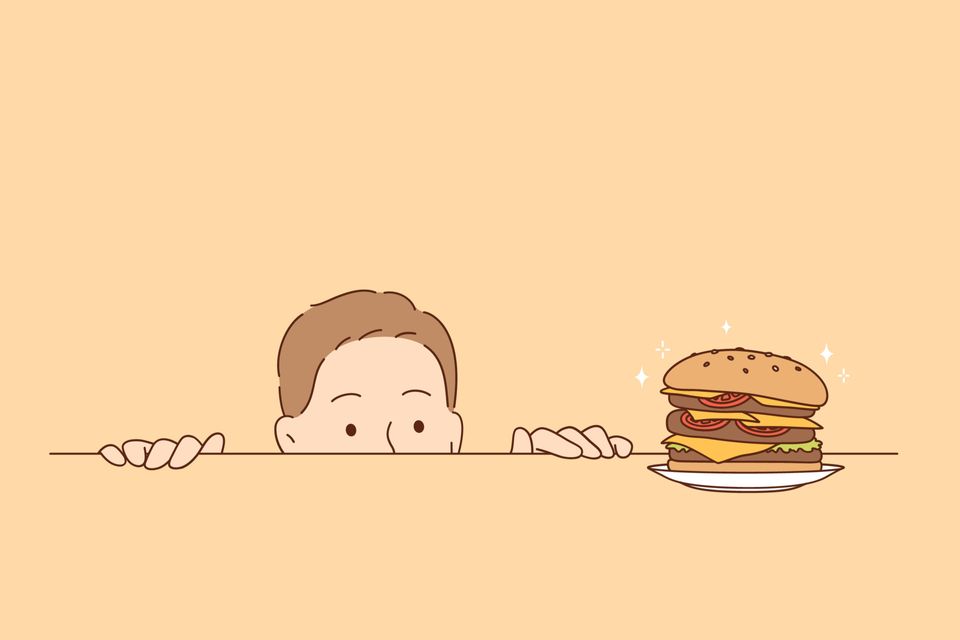Mindless Eating? 10 Sneaky Ways to Eat Less Without Noticing
When it comes to weight loss, the quantity of food you consume plays a significant role, even if you're eating healthy. Fortunately, there are simple strategies you can employ to subtly reduce your food intake without feeling deprived or even realizing it.

When it comes to weight loss, the quantity of food you consume plays a significant role, even if you're eating healthy. Fortunately, there are simple strategies you can employ to subtly reduce your food intake without feeling deprived or even realizing it.
By understanding how your brain perceives portion sizes and leveraging external cues, you can effortlessly eat less and make progress toward your weight loss goals.
In this blog post, we'll explore ten creative and effective ways to eat less without sacrificing satisfaction.
- Downsize your plates for a visual trick:
Using smaller plates creates an illusion of a fuller meal, regardless of the actual quantity of food. By opting for smaller plates and filling them up, you can trick your brain into perceiving a satisfying portion, all while consuming fewer calories. - Embrace the 20% rule:
Utilize the "mindless margin" by serving yourself approximately 20% less food than you normally would. The mindless margin is a buffer zone where your brain doesn't notice a difference in portion size. By gradually reducing your intake within this range, you can effortlessly cut calories without feeling deprived. - Opt for taller glasses:
Height matters! Choose taller glasses over shorter, wider ones to create the perception of a larger volume. This simple trick can help you reduce liquid calorie intake without feeling like you're missing out. - Start your day with protein-packed breakfasts:
Boosting your breakfast with protein has been proven to suppress appetite and reduce subsequent eating throughout the day. Ditch the sugary cereals and opt for protein-rich options like omelets to kickstart your metabolism and keep cravings at bay. - Stick to three balanced meals:
Contrary to popular belief, eating more than three meals a day does not enhance appetite control. In fact, sticking to three well-balanced meals allows your body to maintain a consistent rhythm and minimizes unnecessary snacking. - Out of sight, out of mind:
Keep tempting snacks out of sight or better yet, out of the house altogether. Studies have shown that visibility of food leads to increased consumption. By keeping unhealthy options hidden and readily accessible healthy foods within view, you can effortlessly make better choices. - Chew thoroughly and slow down:
Adopt the habit of thoroughly chewing your food. Not only does this aid digestion, but it also allows you to recognize feelings of fullness faster. By slowing down and savoring each bite, you'll consume fewer calories and feel satisfied with less food. - Serve from a plate, not a package:
Avoid eating directly from the package, as it's easy to lose track of how much you're consuming. Instead, transfer your desired portion onto a plate, bowl, or napkin. This visual cue helps you gauge your intake and prevents mindless overeating. - Skip distractions while eating:
Distracted eating often leads to overconsumption. Avoid eating in front of the TV or engaging in other activities. By dedicating time solely for meals, you can focus on enjoying your food and recognize your body's signals of satiety. - Beware of deceptive health claims:
Don't fall for the "health halo" effect. Many processed foods with health claims on their packaging are often disguised as healthier alternatives. Instead, prioritize unprocessed foods like fruits, vegetables, and whole foods, which rarely require labels.
By incorporating these ten eating strategies into your daily routine, you can effortlessly reduce your food intake without feeling deprived. Remember, small changes can make a big difference over time.